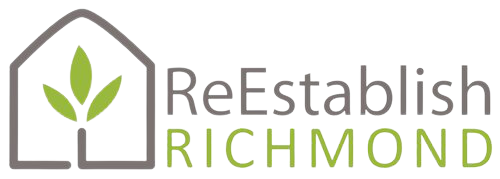Meet Our Interpreters/Translators
by Margaret Edds, ReEstablish Richmond volunteer
During COVID-19, ReEstablish Richmond has worked hard to communicate openly with clients, checking in on them and providing important information and resources in their primary languages. We could not provide this service without the strong support of our local interpreters and translators.
Antoinette Murekatete
After fleeing war-torn Congo and spending five years in a Rwandan refugee camp, Antoinette Murekatete arrived in the U.S. with her parents and eight siblings in 2001. Later, she returned to central Africa to marry her sweetheart. Today, the couple lives with their four children in Chesterfield County, and Antoinette provides language services in Kinyarwanda and Swahili for ReEstablish Richmond.
The greatest challenges in transitioning to America, she said, were adjusting to the language, the transportation system, and the cold weather. In equatorial Congo, heat is a constant.
Asked the best thing about her new home, Antoinette did not hesitate: “Freedom. There’s peace.” Then she smiled, remembering the Black Lives Matter protests. “There was peace.” Like many other Americans, she is hopeful that the protests will bring needed change. “I think (the protestors) are good,” she said. “People are just dying for no reason.”
Bonnie Thapa
Bonnie Thapa arrived in Richmond from Nepal in 2005. Asylum was granted based on persecution of her family’s Christian faith. Now divorced, the mother of two adult children is making her own way in her new homeland. She contracts with nine agencies, including ReEstablish Richmond, to provide interpretive services in Nepali.
The COVID-19 pandemic has struck hard in her community, where many are essential workers serving in hospitals or nursing homes. Bonnie advises them to make their own decisions in weighing health concerns against economic need. Those with small children or elderly parents have a particularly difficult choice, she said.
Bonnie’s primary worry is that some refugees will shy away from taking social precautions — such as wearing face masks — due to cultural norms.
“When you are invited (to a home), you should say without shame, ‘I need to protect myself as well as you,’” she urged.
Zakir Khan
Zakir Khan served for six years as a translator for the U.S. military in Kabul, Afghanistan. Today, he employs those same language skill for ReEstablish Richmond, helping fellow Dari speakers adjust to their new homes in central Virginia.
In 2015 the 30 year-old father of four had just arrived in the U.S. when he met Kate Ayers, Executive Director of ReEstablish Richmond. Kate taught him to navigate the GRTC bus system. Now, Zakir’s translation skills allow him to pass on such vital information to others. Most recently, he has been helping to spread facts and share resources about the COVID-19 pandemic.
Through his communications network, Zakir also connects members of the Afghan community when someone is struggling economically or in need of other help.
“People know each other and help each other,” he said, voicing pride in the strength of such connections.



